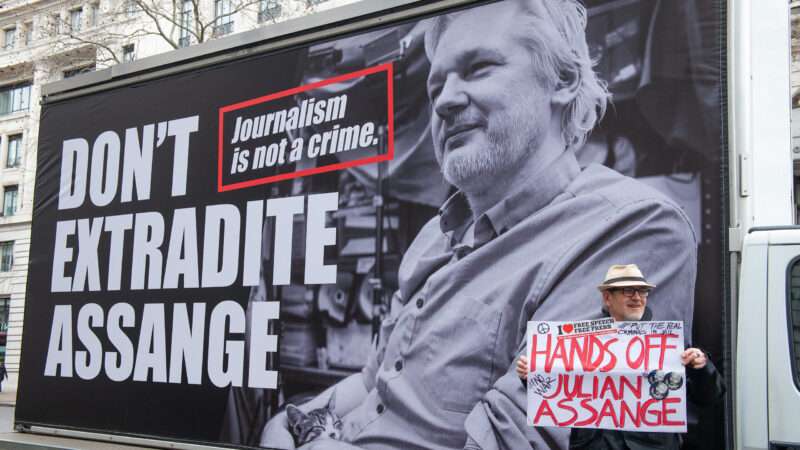
Australian "radical transparency" activist Julian Assange got a boost this week in his efforts to avoid extradition from the U.K. to the U.S. to face multiple Espionage Act charges. On Monday, the U.K.'s High Court ruled that Assange could once again appeal the U.S. government's attempt to extradite him.
American national security bureaucrats and prominent political figures have never forgiven Assange and WikiLeaks for exposing clear-cut war crimes committed by U.S. forces in Iraq during the George W. Bush administration. The U.S. government used its own document classification system and policy to conceal those war crimes, which included the murder of journalists and Iraqi civilians caught on video from a U.S. Army helicopter.
Yet the coverage of the High Court's most recent decision in Assange's favor by outlets such as the BBC, the Associated Press, ABC, and The New York Times includes no reference to that fact. There's no mention of how the "leader of the free world" used patently undemocratic methods not only to hide criminal conduct by its military but also to politically and legally destroy Assange and Chelsea Manning—the whistleblower who leaked the helicopter murder video to WikiLeaks.
Over the years, Assange and his allies have slowly but surely been gaining support to get the U.S. government to drop the case. One of Assange's most significant victories came in February 2024 when Australian Prime Minister Anthony Albanese joined 85 of his colleagues in Parliament in supporting a motion calling on the U.S. government to end the legal case against Assange "so that Mr. Assange can return home to his family in Australia."
While Albanese's rhetorical support is helpful, he could do more to resolve this matter quickly. For decades, Australia and the U.S. have operated joint intelligence-related bases on Australian soil, which are vital to the U.S. national security establishment. If Albanese were to suggest that a failure to drop the charges against Assange would force Australia to reconsider hosting U.S. intelligence operations, it would send a clear message to the Biden administration about the high cost of continuing the Assange prosecution.
Some might argue that such a threat could backfire. The dispute in 1985 over New Zealand's ban on U.S. nuclear-armed or nuclear-powered ships docking at its ports led to a major rupture in relations. However, the geopolitical situation in the Pacific is far different today, as is Australia's defense and security relationship with the United States.
In light of China's growing influence in the region, a threat by Australia to reevaluate security cooperation with the U.S. unless the Assange indictment is dropped would send political shock waves through Washington. Just last month the Biden administration floated a trial balloon in the press about dropping the Assange indictment. A not-so-subtle nudge by Albanese, coming on the heels of this week's High Court ruling, might be enough to convince Biden that it is time to close the books on the Assange episode once and for all.
The post End the Assange Indictment Charade appeared first on Reason.com.







